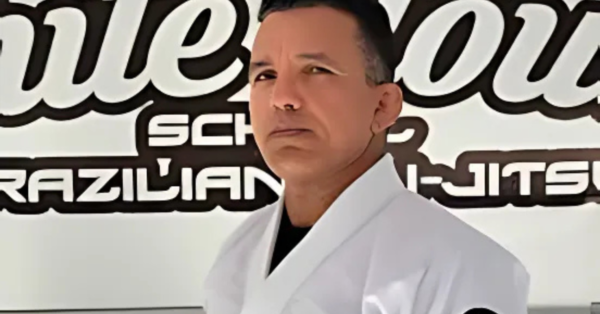In November of last year, a deeply disturbing case shook the Brazilian jiu-jitsu community. A 23-year-old athlete from Amazonas took to social media to share his traumatic experiences, revealing that he had been abused by his instructor between the ages of 10 and 14 during his early years in the sport.
The accused, a 56-year-old coach, was arrested at a championship in Balneário Camboriú, where he was attending the event with young athletes. According to the authorities, at least 12 victims have been identified, and six more are expected to testify.
What made the case even more alarming was how the first few testimonies led to a wave of new allegations. Well-known athletes like Matheus Gabriel, Ary Farias, Meyram Maquiné, and Thalison Vitorino also came forward with their own childhood experiences.
Survivor Testimonies
One athlete shared that during team trips, the coach would allegedly give the children medication to help them sleep. The victim spoke out via Instagram stories, describing both physical pain and emotional confusion.
“All we wanted was to become world champions, but we were manipulated and forced to endure things we didn’t understand.”
He added that the coach used emotional manipulation, gifts, travel expenses, and promises to gain trust and silence the children, many of whom came from underprivileged backgrounds.
“He said I was like a son to him. But the truth is, I was just another child suffering in silence.”
Why the Delay?
Detective Déborah Ponce de Leão, who is leading the investigation, explained that shame and emotional dependency often prevent victims from speaking out.
“Many of the boys admired him as a mentor. It took years for them to process what had happened. Our team had to work carefully to support them emotionally.”
Police reports confirm that the instructor used his reputation and influence to gain access to children and manipulate them over the years, often during travel and competitions.
Moving Forward
This case highlights the urgent need for safety, transparency, and accountability in youth sports. Martial arts communities—especially those involving minors—must have clear protocols in place to prevent abuse and ensure trust.
No title, medal, or achievement is more important than the well-being and dignity of a child.
Editor’s Note: This article deals with a sensitive topic and has been carefully edited in accordance with advertising and content guidelines to protect the dignity of those involved while ensuring responsible coverage.
